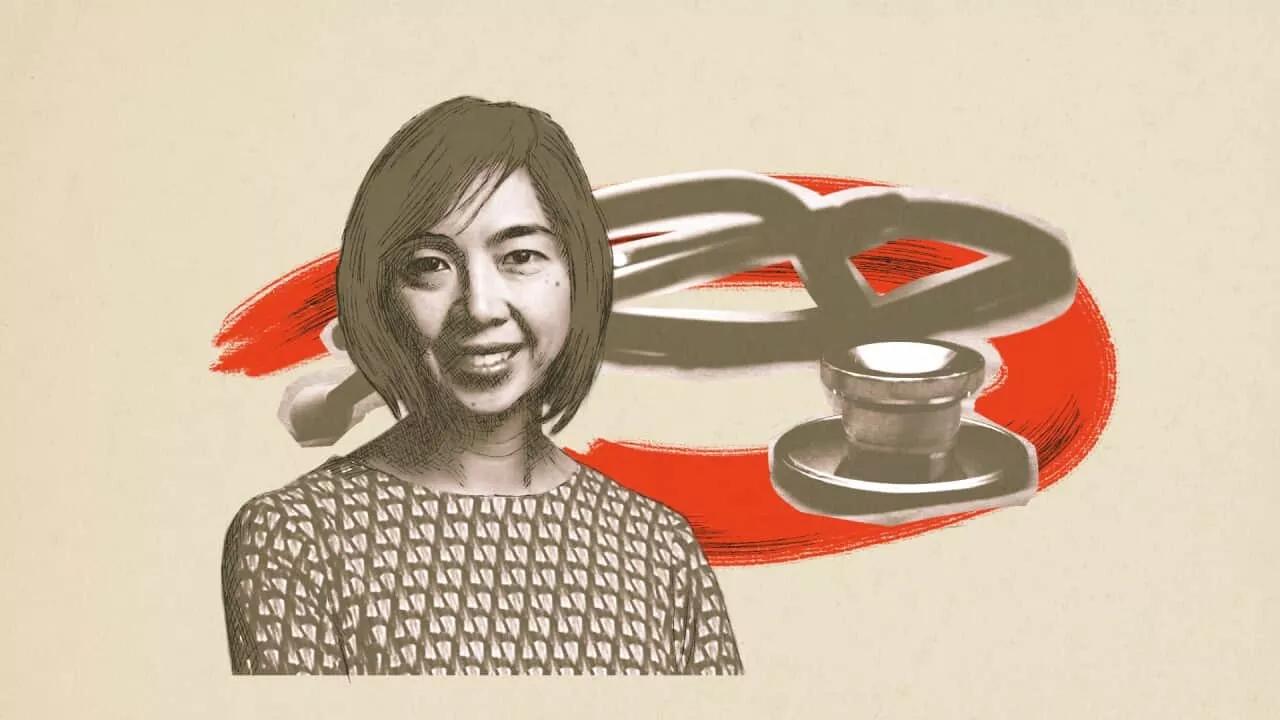Women and trans people clearly experience ongoing barriers and bias in our health system, but what about those on the very frontline of care? Healthcare professionals fight tirelessly to provide quality care to all who need it, but women and trans health workers are reporting bias,...
Professor Ada Cheung is a research fellow and clinician scientist at the University of Melbourne who says she has been discriminated against in her role as a doctor.
Experiences of sexism and discrimination can range from the more insidious exclusions to instances of outright bullying. He was brought in from a different children's hospital in Sydney in 2018 as the two hospitals were becoming a network. "And I could tell at the beginning of the meeting and the way he was reacting to me that I had no chance. But it was the way he did it, I experienced a physical meltdown because I knew what he was doing and I could feel... He's saying things that aren't true, and he just made me feel horrible and I broke down and he was making comments like, 'look, you can't even speak properly'. And it was just so humiliating that it actually destroyed me.
It explored the experiences of workplace gender discrimination from the perspective of nurses across 12 countries including Australia, and found that although men are a minority in nursing they do not suffer the same consequences as other minority groups in regard to career success. "I think I was treated this way because he was a male nurse, and he obviously struggled as a male nurse, and he struggled with his own identity in nursing. And I think I was treated that way because he didn't want me in a position that I deserved and that I had performed in for over a year. But, you know, if something's not right, I will speak up and usually I will speak up. I won't walk past something that's not right.
Professor Ada Cheung is a research fellow and clinician scientist at the University of Melbourne, as well as a practicing endocrinologist. This bias is despite the fact female GPs actually spend longer with their patients on average than male GPs. "There is a significant gender pay gap within general practice and medicine. Because of the way that the system is set up, the system is set up to firstly reward medicine or procedures, and it doesn't reflect the type of practice that female GPs do. We know that female GPs see patients for longer who are more complex. What we're then finding is that the rebate that is back from Medicare, really the gap is widening between our male and female GPs.
Unlike GPs, surgery continues to be a male-dominated field, with women still only comprising 15 per cent of the workforce. "And so it's not surprising when I say as I was coming through training in the late 1990s and early 2000s, that was taken as something that we would meet almost for granted. That if you wanted to play with the boys, as they used to say, that you had to take some of the heat in the kitchen, by which they meant that we would have to take a fair bit of tease banter. Some of us experienced physical sexual harassment.
"So in a medical career where it is important to be present and get the experience and the hands-on experience, if we take time out to have babies and pregnancies, it means that disadvantages us. And actually that shouldn't be true at all. We have had more than 50 per cent medical school entry of women for a long time. We have specialties which are almost 50 per cent. Some like Obs and Gyn is now 80 per cent women.
Vic is the trans and gender diverse health lead at Thorne Harbour Health Clinic in Victoria - an LGBTIQ+ community-controlled health organisation. This can be particularly challenging when, as Vic describes, trans health workers are often battling unfair stereotypes from their colleagues. And another common scenario almost any minority group would be familiar with is the expectation to become the expert on your community.
Alongside Professor Teede's work with the 'Advancing Women in Healthcare Leadership' project, there's also a commitment to changing the system and ensuring the burden isn't placed on individuals. "One of the things that we do well at Thorne Harbour is seeing trans people as human beings and not just as trans people. We look at their skills and their experiences, and if they fit the job they get the job. Having trans people in all levels of an organisation I think is really important. I think also the culture of a workplace is so important.
Australia Latest News, Australia Headlines
Similar News:You can also read news stories similar to this one that we have collected from other news sources.
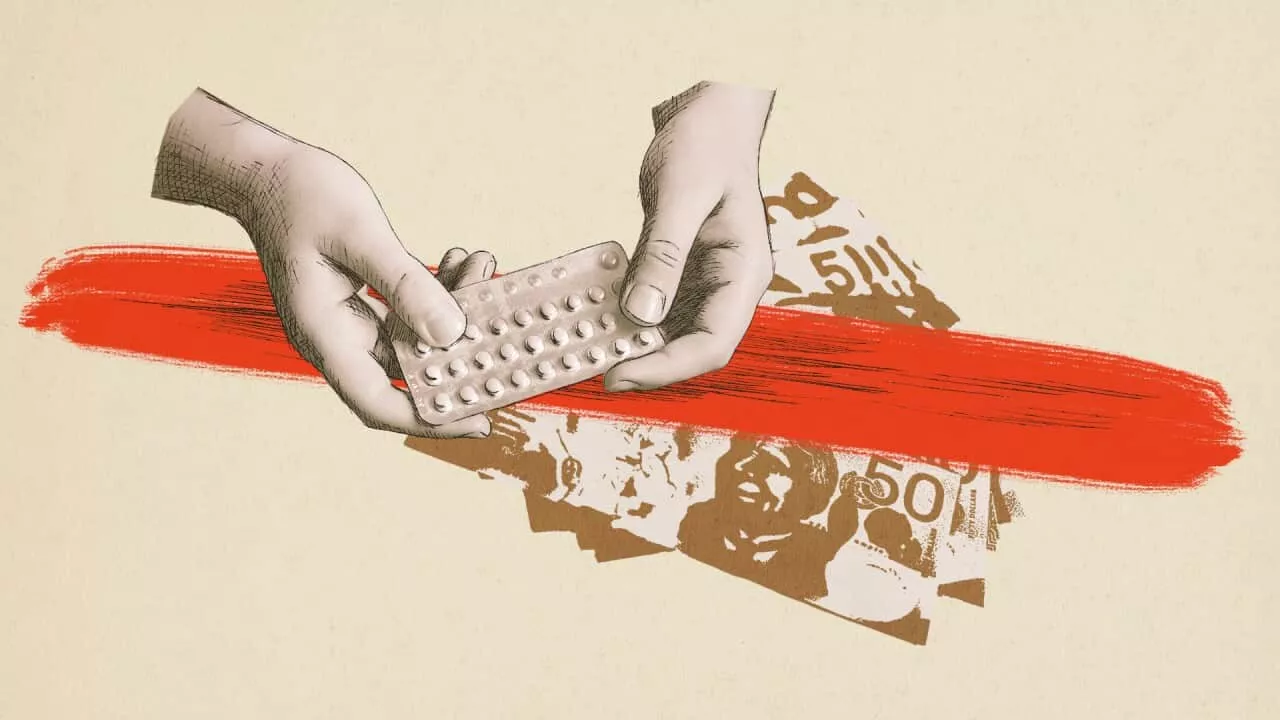 Hysterical: Why do some groups have to fight for safe and affordable sexual and reproductive healthcare?It was a historic moment for Australia... as Western Australia became the last state in the country to decriminalise abortion in March this year. The federal government also committed just over $6 million dollars in funding to contraceptive care in the May budget.
Hysterical: Why do some groups have to fight for safe and affordable sexual and reproductive healthcare?It was a historic moment for Australia... as Western Australia became the last state in the country to decriminalise abortion in March this year. The federal government also committed just over $6 million dollars in funding to contraceptive care in the May budget.
Read more »
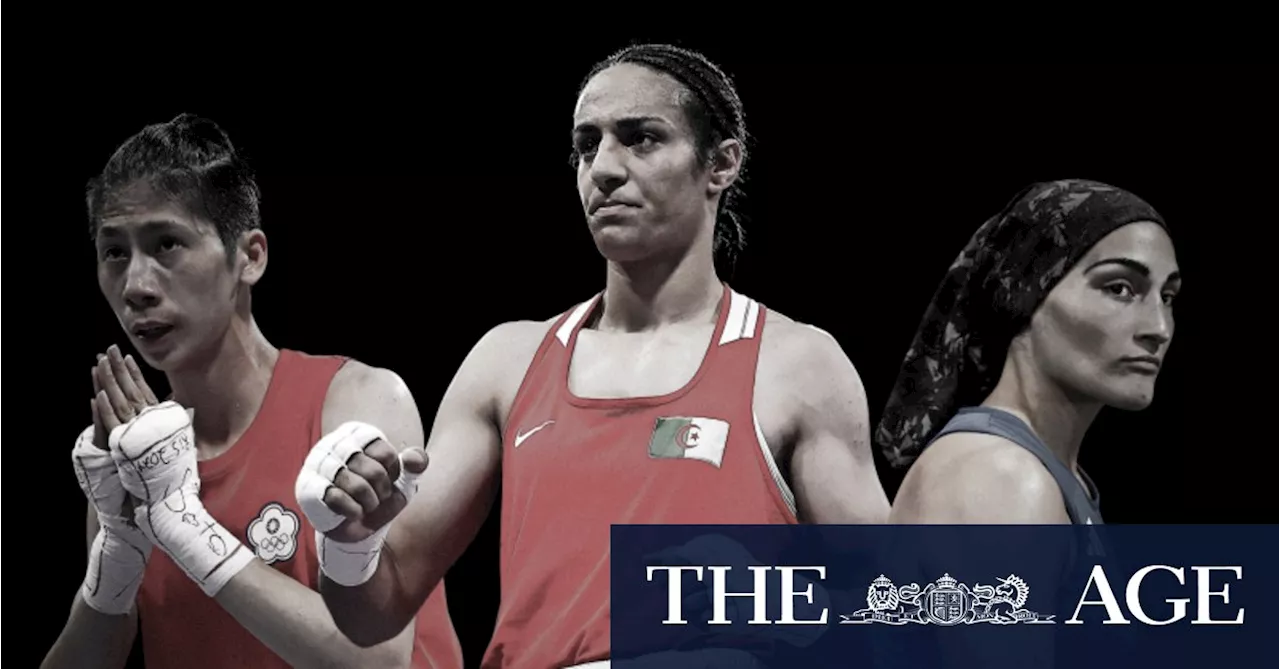 ‘Women’s category must be only women’: Doctor defends IBA bans at farcical press conferenceAt a chaotic press conference in Paris, the IBA detailed tests that had been carried out on boxers who are in the middle of an Olympics controversy.
‘Women’s category must be only women’: Doctor defends IBA bans at farcical press conferenceAt a chaotic press conference in Paris, the IBA detailed tests that had been carried out on boxers who are in the middle of an Olympics controversy.
Read more »
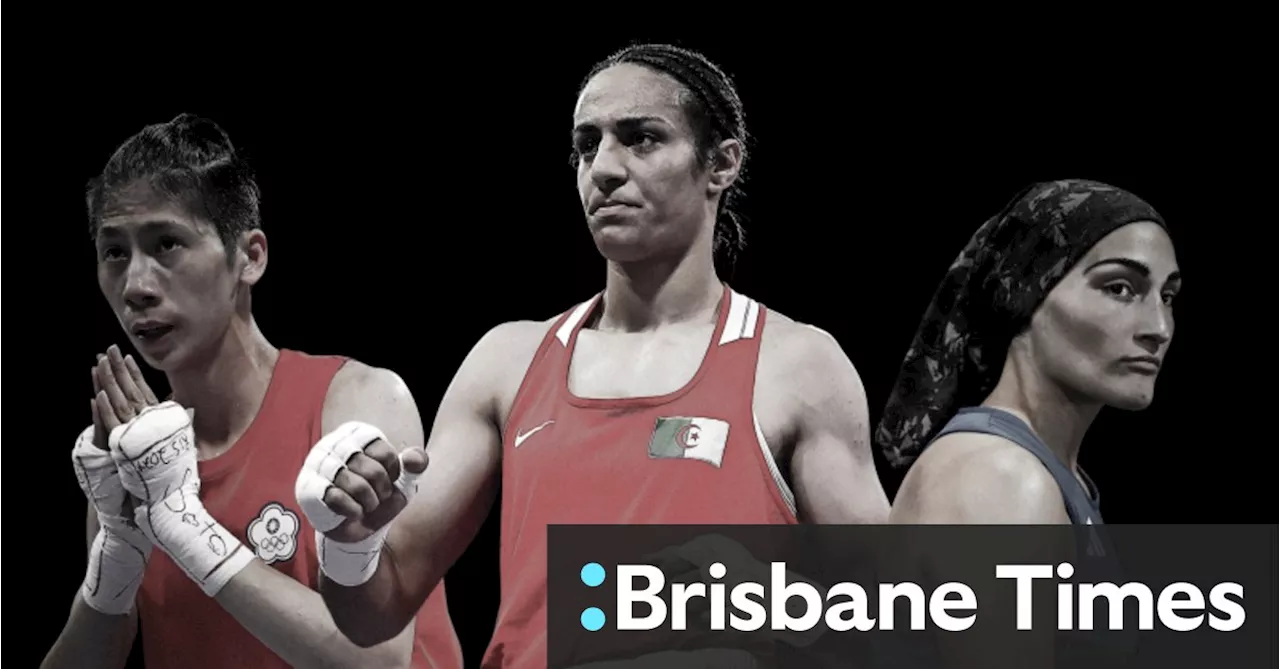 ‘Women’s category must be only women’: Doctor defends IBA bans at farcical press conferenceAt a chaotic press conference in Paris, the IBA detailed tests that had been carried out on boxers who are in the middle of an Olympics controversy.
‘Women’s category must be only women’: Doctor defends IBA bans at farcical press conferenceAt a chaotic press conference in Paris, the IBA detailed tests that had been carried out on boxers who are in the middle of an Olympics controversy.
Read more »
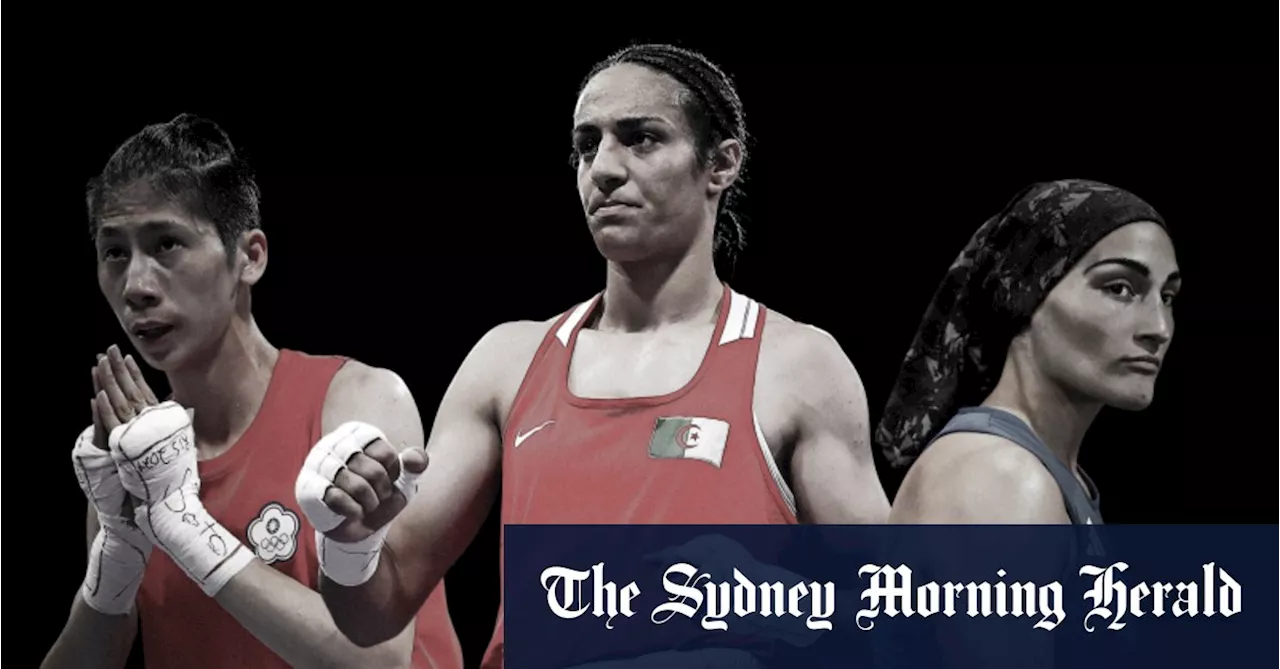 ‘Women’s category must be only women’: Doctor defends IBA bans at farcical press conferenceAt a chaotic press conference in Paris, the IBA detailed tests that had been carried out on boxers who are in the middle of an Olympics controversy.
‘Women’s category must be only women’: Doctor defends IBA bans at farcical press conferenceAt a chaotic press conference in Paris, the IBA detailed tests that had been carried out on boxers who are in the middle of an Olympics controversy.
Read more »
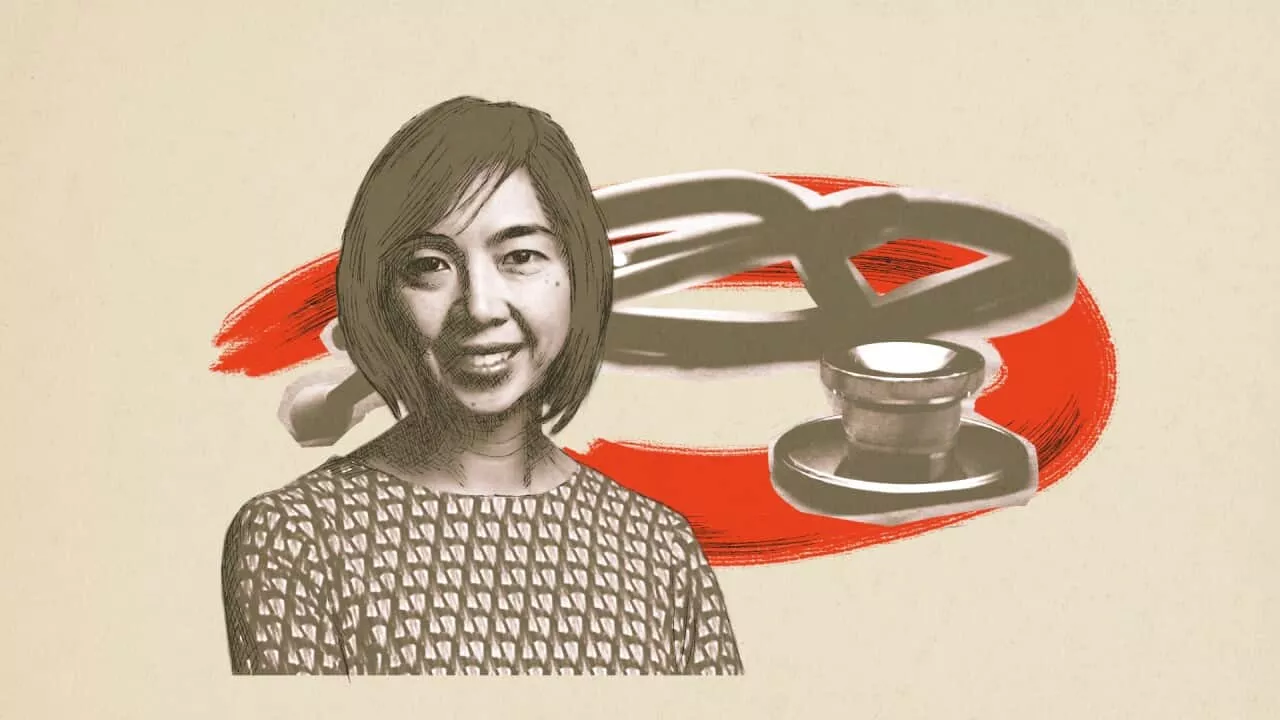 Hysterical: Some people experience barriers and bias seeking health care, but what about those delivering it?Women and trans people clearly experience ongoing barriers and bias in our health system, but what about those on the very frontline of care? Healthcare professionals fight tirelessly to provide quality care to all who need it, but women and trans health workers are reporting bias,...
Hysterical: Some people experience barriers and bias seeking health care, but what about those delivering it?Women and trans people clearly experience ongoing barriers and bias in our health system, but what about those on the very frontline of care? Healthcare professionals fight tirelessly to provide quality care to all who need it, but women and trans health workers are reporting bias,...
Read more »
 Hysterical: whose bodies do we study, and is our treatment falling behind?The male body is still treated as the default in medicine, despite progress around women's health issues. This prevailing bias in medical studies and clinical trials can have dire consequences for women and trans people who are vulnerable to misdiagnosis and unknown side effects from medication.
Hysterical: whose bodies do we study, and is our treatment falling behind?The male body is still treated as the default in medicine, despite progress around women's health issues. This prevailing bias in medical studies and clinical trials can have dire consequences for women and trans people who are vulnerable to misdiagnosis and unknown side effects from medication.
Read more »
